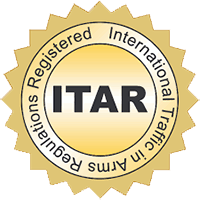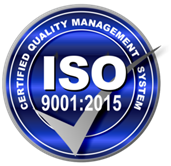
How Supporting Small Suppliers Bolsters Aerospace Supply Chain Resiliency
Small suppliers play a pivotal and often undervalued role in aerospace and defense manufacturing. Their agility and specialized expertise, particularly in the area of performance plastics and plating, make them indispensable and valuable assets in the broader supply chain. In an industry where precision and reliability are paramount, companies like SAT Plating offer bespoke solutions and innovative materials that large manufacturers might overlook, but they are nonetheless important. The interconnectedness of aerospace and defense sectors amplifies this importance, as disruptions in one often ripple across the other. Thus, bolstering the resilience of these small suppliers isn’t just a matter of nurturing the underdog; it’s a strategic necessity for maintaining a robust, adaptable, and efficient supply chain in a sector where the stakes are sky-high and the margins for error are razor-thin.
The Importance of Small Suppliers in Aerospace
Small suppliers in the aerospace industry are more than just cogs in a massive machine; they are dynamic and essential contributors that bring a level of flexibility and adaptability that large suppliers often cannot match. Their smaller scale allows for quicker decision-making and more rapid implementation of changes, making them key players in an industry whose technological advancements and market demands evolve at breakneck speed. This agility is especially crucial when it comes to responding to unforeseen challenges or urgent demands–a common occurrence in aerospace. Small suppliers can pivot more easily, scaling production up or down as needed, and can often provide more personalized, customer-focused service.
Having a diverse range of suppliers, including small businesses, also plays a large role in risk management within the aerospace supply chain. This diversity creates a buffer against disruptions. If one supplier faces a setback, others in the network can step in, ensuring continuity of supply and reducing the risk of bottlenecks. This multiplicity also fosters innovation and collaboration for a greater good.
Small suppliers can also bring fresh perspectives and specialized knowledge, driving forward-thinking solutions and cutting-edge developments in materials and processes. With regards to performance plastics, their innovative approaches can lead to the development of lighter, more durable, and more efficient materials. These advancements not only benefit the aerospace sector but can also have far-reaching implications across various industries, like healthcare, space satellites, and more, showcasing the broad impact of nurturing a diverse and robust supplier base.
Challenges Faced by Small Suppliers
Small suppliers in the aerospace and defense sectors, despite their crucial role, often grapple with a unique set of challenges that can impede their growth and operational efficiency. One of the most significant hurdles is their limited resources. Unlike their larger counterparts, small suppliers typically have less financial cushion and fewer human resources, making it challenging to invest in research and development or to scale up production rapidly. This resource constraint can also impact their ability to market themselves effectively, limiting their access to new business opportunities and partnerships within the larger aerospace and defense ecosystem.
Another major challenge is navigating the complex web of regulations and compliance requirements inherent in the aerospace and defense industries. These sectors are among the most heavily regulated, with stringent standards for quality, safety, and security and for good reason–one small faux pas at 35,000 feet can mean life or death. For small suppliers, staying abreast of these ever-evolving regulations and ensuring compliance can be daunting. The process often requires significant investment in compliance infrastructure and expertise, which can be disproportionately burdensome for smaller entities. These regulations, while crucial for maintaining high standards in the industry, can act as barriers to entry for small suppliers, limiting their ability to compete on a level playing field and potentially stifling innovation.
Strategies for Supporting Small Suppliers
To enhance the vitality and contribution of small suppliers in the aerospace and defense sectors, performance plastics manufacturers can adopt several strategies to nurture these crucial relationships. Building long-term, mutually beneficial partnerships with Tier 1 suppliers and OEMs is a key step in this process. This can be achieved by moving beyond transactional interactions to develop deeper, more collaborative relationships. Large companies can play a pivotal role here by sharing resources and expertise. For instance, they could offer access to advanced research facilities, software tools, or logistical support, enabling small suppliers to innovate and scale more effectively without the prohibitive cost.
Additionally, larger companies can provide specialized training programs tailored to the unique needs and challenges of small suppliers. This training, combined with the expertise that small suppliers have can lead to formidable advancements in technology, lightweighting, and more. Such knowledge transfer not only empowers small suppliers but also ensures a higher standard of quality and innovation across the supply chain.
Financial assistance is another vital area of support. This could come in the form of favorable payment terms, grants, or low-interest loans to help small suppliers manage cash flow and invest in growth initiatives. Supply chains are often as competitive as they are collaborative and financial assistance from Tier 1 manufacturers and OEMs can create a rising tide that lifts all ships. Furthermore, larger companies can advocate for small suppliers within the broader industry, helping them gain access to new markets and business opportunities. By taking these steps, performance plastics manufacturers can create a more resilient, innovative, and inclusive supply chain, which not only benefits their immediate interests but also strengthens the entire aerospace and defense ecosystem.
The Future of Aerospace Supply Chains
The future of aerospace supply chains is poised to be shaped significantly by two dominant trends: digitalization and sustainability. Digitalization, encompassing the integration of advanced technologies like AI, IoT, and blockchain, is revolutionizing how supply chains operate. It offers enhanced transparency, efficiency, and responsiveness. Small suppliers, often more agile and adaptable, are increasingly embracing these technologies to streamline their operations, improve production processes, and enhance collaboration with larger partners. This digital leap not only boosts their competitive edge but also aligns them more closely with the evolving needs of the aerospace industry.
Sustainability is another critical trend. With increasing focus on reducing environmental impact, the aerospace industry is under pressure to adopt more sustainable practices. Small suppliers are responding by innovating in areas like eco-friendly materials and energy-efficient manufacturing processes. Performance plastics manufacturers, in particular, are at the forefront, developing lighter, more durable materials that contribute to fuel efficiency and reduced emissions in aerospace applications without sacrificing performance.
Wrapping Up
As the aerospace industry embarks on a future defined by increased demands, rapid digitalization and a commitment to sustainability, the role of small suppliers becomes ever more crucial. Aerospace and defense suppliers like SAT Plating are not just supporting the industry; they are actively shaping its future. In recognizing this, companies like SAT Plating emerge not only as crucial contributors but as leaders in fostering a resilient and dynamic aerospace supply chain. Embracing this era of transformation, it is essential for larger entities and stakeholders in aerospace and defense to deepen their collaboration with small suppliers, supporting them through shared resources and joint innovation initiatives.
By investing in these partnerships, companies can unlock a wealth of innovation and resilience, ensuring that the aerospace supply chain not only withstands the challenges of today but thrives in the face of tomorrow’s opportunities. At SAT Plating, we offer comprehensive support spanning from R&D and prototyping, to large-scale manufacturing and seamless product delivery to our A&D partners. Contact our knowledgeable team today to begin discussing your project’s specific needs and discover how SAT Plating can assist in meeting your exact specifications. Our capabilities extend to accommodating programs that require as few as 1,000 parts or exceed 1+ million parts annually. We welcome new partnerships in this collective effort to create a supply chain that is as robust as it is revolutionary.






